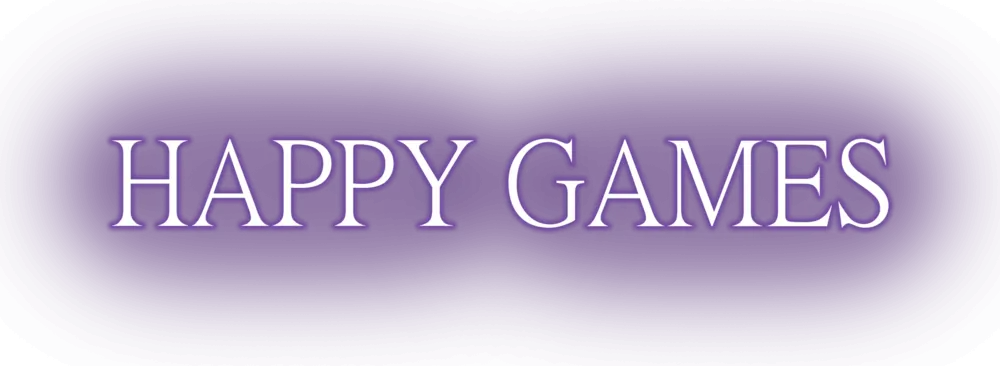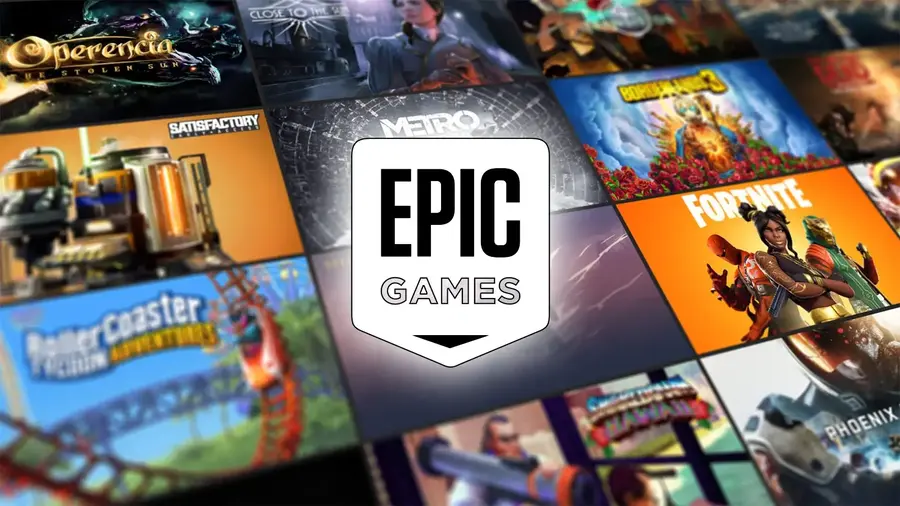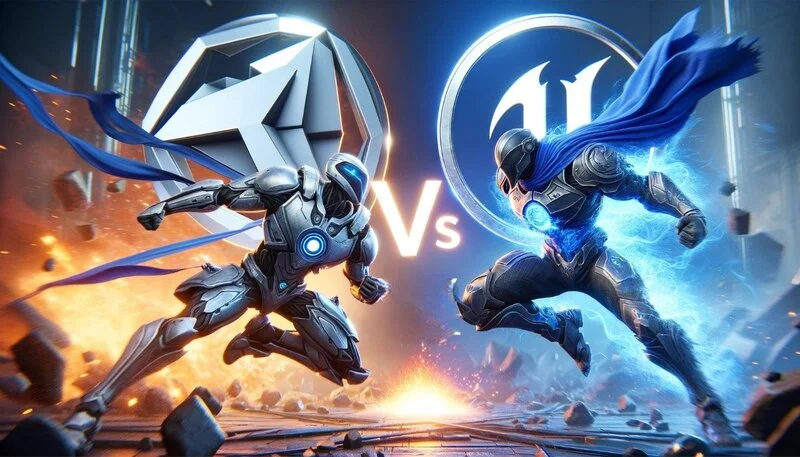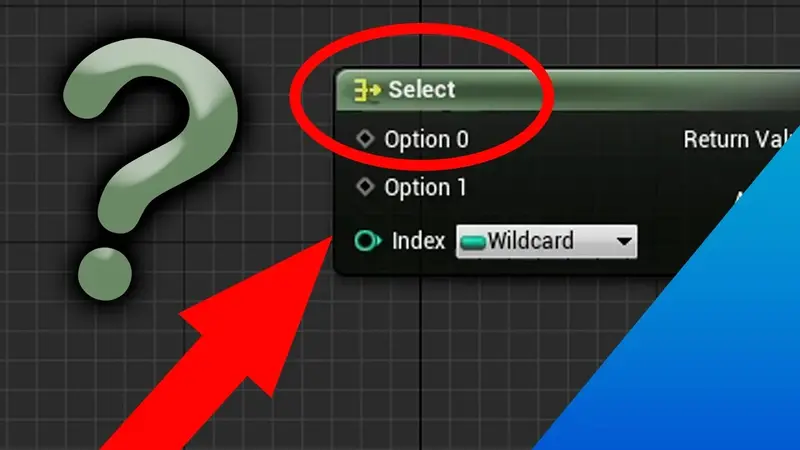Who is a major player in the gaming world? Apik Games, which created the...
Read moreWhat is programming? And how do you start learning in 2025?

Table of Contents
- What is programming?
- How does computer programming work?
- The most common programming languages
- JavaScript
- HTML/CSS
- SQL
- Python
- TypeScript
- C++
- C#
- The magical world of programming languages: a journey through the five main categories
- First step: Define your programming goals
- Step two: Sign up for an introductory programming course
- Third step: developing essential programming skills
- Step four: Connect to the community of programmers
- Step Five: It's time to turn your knowledge into reality!
- Step Six: Explore your future in programming
- Ready to join the game
Are you already programming?
It's time to take your knowledge to the next level with Enril Engin game development!
bloodCreate for yourself a world where you can give life to your ideas. A world where you can build fascinating games, solve creative problems and build new worlds.
a world where ATam can make the impossible possible.
This world is the world of programming.
Programming is a powerful tool. It allows us to give instructions to computers, and make them do whatever we want. Whether you are a child, teenager or adult, programming can be a fun hobby, a useful tool and even a fascinating career.
So how do you start?
The world of programming can seem daunting at first, but fear not! There are many resources available to anyone who wants to learn.
So let's go ahead and learn the definition of programming, some common programming languages, and steps to start building programming experience.

Want to upgrade your programming skills?
Learn to develop games in Enril Engin and start a successful career in the world of programming!
Table of Contents
- What is programming?
- How does computer programming work?
- The most common programming languages
- JavaScript
- HTML/CSS
- SQL
- Python
- TypeScript
- C++
- C#
- The magical world of programming languages: a journey through the five main categories
- First step: Define your programming goals
- Second document: register for courses and expand your knowledge
- Third step: developing essential programming skills
- Step four: Connect to the community of programmers
- Step Five: It's time to turn your knowledge into reality!
- Step Six: Explore your future in programming
- Ready to join the game?
What is programming?
Imagine a whole world of possibilities, where you can tell the computer exactly what to do - not just open photos or send messages, but solve complex problems and create amazing things. This is exactly the world of programming!
Programming is like a secret language that allows us to talk to computers. We, humans, write special instructions in a language that computers understand (code), and they carry out our tasks.
why is it important? Because programming affects almost everything in our lives!
So where do we meet in programming?
- Web surfing - When you search for information, make a purchase or communicate with friends, you are actually using programming! It allows you to press buttons, fill out forms and browse between pages easily.
- Apps on the phone - Ordering food, fun games, managing bank accounts and even translating languages in real time - all these are possible thanks to programmed applications that provide you with convenient and fast services.
- efficient business - Many companies use programming to better manage work, store information, communicate with customers and even hold online video meetings.
- space Research - Robots that roam on Mars, satellites that provide us with information about the weather, spaceships that dive into the depths of space - they all work thanks to sophisticated programming!
How does computer programming work?
At its core, programming tells the computer what to do. This process is carried out in three main stages:
First step writing code: A programmer writes code, which is actually a set of letters, numbers and other characters.
Second step translation: A compiler turns each line of code into a language that a computer can understand.
Third step execution: The computer reads the code, executes the instructions, and thus performs one or several tasks. These tasks can be displaying an image on a website or changing the font of text.
Think of it like giving a recipe to a chef. You write the recipe (the code), the chef (the translator) understands your instructions and prepares the dish (executes the code), and you enjoy the result (the task accomplished).
The most common programming languages
Programmers use different programming languages to write code that computers understand.
according to a survey ofStatista – As of 2023, there are seven leading programming languages among developers:
JavaScript – Mainly used for developing interactive websites, client-side applications and front-end frameworks.
HTML/CSS – A combination of two languages - HTML to build the website structure and CSS to design it. Necessity in the development of any website.
SQL – Used to manage and analyze data stored in databases.
Python – A popular multipurpose language for data science, web development, automation, and more.
TypeScript – Superstatics of JavaScript that allows writing elegant and typed code, is mostly common in the development of large client-side applications.
C++ – Powerful and fast language used in game development, operating systems, artificial intelligence software and more.
C# – It is another programming language that is especially popular among developers. It is a modern, efficient and relatively easy to learn language and is used for application development Windows, web development and more.
JavaScript
Imagine a close-knit network of small, nimble and smart codes that liven up the internet as we know it. This is the magic world of javascript , a technological language used in almost every major web browser.
What does JavaScript do?
- Real-time content updates – Instead of static and rigid pages, turn your website into a lively booth that updates without the need to refresh. New displays, game results, or changing prices - all continuously and immediately.
- Interactive maps – Create fascinating visual worlds. Allow surfers to zoom, scroll and click on markers to explore information in an experiential and fun way.
- graphics and animation - Add movement and color to your life! JavaScript makes it possible to build attractive animations and interactive designs that leave an impression.
- game development - Not just websites, but also entire game worlds! JavaScript is used to develop simple and complex browser games, and allows you to build interactive and challenging game spaces.
And we haven't talked about her real power yet - JavaScript isn't just for websites. It serves as a basis for building complete client-side applications (Front-End), and with the right combination of technologies, also for developing server-side applications (Back-End).
In conclusion, JavaScript is a flexible and versatile language, which opens up a wide world of possibilities in the field of Internet and software development. Dive into it, let the creativity flow, and start building your amazing projects!
HTML/CSS
Imagine a whole digital world that you can create with your own hands. Spectacular websites, interactive applications, attractive landing pages - all these are possible thanks to two wonderful languages: HTML and CSS.
HTML (HyperText Markup Language) – she is like The skeleton of the house. It defines the content and structure of the web page - the titles, paragraphs, images, forms and everything that forms the "bones" of the website.
CSS (Cascading Style Sheets) – she is like The color, design and furniture of the house. It allows you to design the look and feel of the web page - choose colors, fonts, layouts, and everything that gives it its unique personality.
Together, HTML and CSS work in perfect harmony:
- HTML - structure and content.
- CSS – design and visuals.
What can you do with this duo?
- personal websites - Introduce yourself, your business or your hobbies to the world.
- blogs - Share your knowledge, thoughts and creativity with a readership.
- online stores - Sell your products, services or original works online.
- Landing Pages - Get new leads or advertise special events and projects.
Even if you are a beginner, there is no reason to fear! There are many resources available online that will teach you the basics of these languages in an easy and fun way. In no time you will start creating your own amazing digital worlds.
SQL
Imagine a whole world of information organized, available and easy to analyze. This is the magical world of SQL (Structured Query Language), a dedicated query language that allows you to communicate with databases in an efficient and simple way.
Why SQL?
- versatile – SQL can be used with a wide variety of databases, both commercial and open source.
- easy to learn - The syntax of SQL is relatively simple, which makes it accessible even to beginners.
- powerful – Allows you to perform a wide variety of operations on data, from simple retrieval to complex updates and statistical analyses.
- useful - It is an essential tool for many professionals, including analysts, data scientists and developers.
Where is SQL used?
- Data Analysis - SQL is a powerful tool for extracting insights from data, both for business and research.
- Software Development - Used by many developers to integrate data within software.
- information system management It is an essential tool for managing and maintaining databases.
In conclusion, SQL is an important and useful language for anyone who works with data.
Python
Imagine a language that allows you to build cool software and games, develop amazing apps and analyze huge data - all in a simple and fun way. That's exactly the magic of Python (Python), a particularly popular programming language due to its accessibility and versatility.
Why Python?
- beginner friendly – Unlike other programming languages, Python has a simple and clear syntax, making it a smooth entry into the world of programming.
Even if you don't have a technical background, you can start learning and writing code in no time. - versatile – Python is used in a wide variety of fields, from website and game development to machine learning and artificial intelligence. This means that with knowledge of Python, you have many interesting career options.
Where is Python used?
- machine learning – Python is a leading language in the field of machine learning, used to develop smart algorithms that can recognize patterns and make predictions.
- Web development - Python makes it possible to build dynamic and interactive websites, including server-side and client-side applications.
- Data Analysis - With dozens of dedicated libraries, Python is excellent for processing, analyzing and presenting data clearly and efficiently.
- game development - Python also occupies a central place in the world of games, and is used to develop both simple and complex games.
No matter what your technological dream is, Python can be the gateway to a fascinating world of creation, development and evolution. So don't wait, dive into the amazing world of Python, and let your imagination lead you to new realms!
Programming is the future!
Let's learn how to combine programming with game development in Enril Engin
TypeScript
Imagine a world where code flows easily, softly and clearly, a world where developing complex software becomes a pleasant and simpler experience. This is the magic world of TypeScript, an innovative programming language from Microsoft, which offers you a unique way to develop large and sophisticated applications.
TypeScriptt is not just another language. It is built on top of JavaScript, the familiar and beloved programming language, and adds to it another layer of power and ease of use.
What is the language called TypeScript?
- readable code - Allows you to write clear, orderly and more understandable code, using a simple and intuitive syntax.
- Effective development - Helps you avoid errors while writing the code, and allows you to focus on building quality software more efficiently.
- easy maintenance - TypeScript code is easier to understand and maintain, both for you and other development teams.
- supporting community - The TypeScript community is constantly growing and evolving, providing support, training, and resources.
Where is TypeScript used?
- applications development - TypeScript is an excellent choice for developing complex web applications, both on the client side (Front-End) and on the server side (Back-End).
- Mobile application development - It can be used to develop mobile apps using popular platforms like React Native.
- Desktop software development - TypeScript is a versatile tool and can also be used for desktop software development.
In conclusion, TypeScript is a powerful, readable and accessible language that offers you a new and advanced way to develop software.
C++
Imagine a powerful language that allows you to build fast and efficient software, advanced operating systems and spectacular 3D games.
This is the magic world of C++ (C Plus Plus), an old and valued programming language, loved by experienced developers thanks to its flexibility and power.
Why C++?
- high performances - C++ is known for its ability to produce fast and efficient code, making it an ideal choice for high-performance software such as operating systems and games.
- flexibility - Gives you a lot of control over memory management, hardware and data structures. This allows you to build complex and customized software, making maximum use of the computer's resources.
- A strong community - You enjoy a large and supportive community of developers, which makes it easy to find answers to questions, get help with projects and make professional connections.
Where is C++ used?
- Operating Systems - Many operating systems, such as Windows and Linux, are written in C++ for its high performance and stability.
- industrial software - Used in the development of many industrial software, such as CAD/CAM software, image processing software and system management software.
- Games – C++ is a very popular language in game development, both for PC and mobile games.
- General software development - The language can be used to develop a wide variety of programs, from simple programs to highly complex programs.
C++ Closely related to Unreal Engine, The game engine The most popular in the world. Unreal Engine Known for his advanced capabilities in the field The 3D graphics, Physics, artificial intelligence and more. C++ is the primary programming language used to develop games on the Unreal Engine, allowing developers to take full advantage!
Blueprints – another magical tool
Unreal Engine Offers another amazing tool - Blueprints.
Blueprints is a visual programming system that allows you to create logic for games and other software using an easy-to-use drag-and-drop interface.
Blueprints benefits:
- easy to learn - Even if you have no prior programming experience, you can easily learn to use Blueprints.
- intuitive – The visual interface is simple and clear, allowing you to easily understand the data flow and logic of the program.
- Productive – Blueprints allows you to develop software quickly and efficiently, saving time and effort.
- flexibility - Blueprints can be used in conjunction with C++, allowing you to enjoy the benefits of both languages.
In conclusion, C++ is a powerful and versatile programming language with many uses. It is an excellent choice for developers who want to build fast and efficient software, advanced operating systems and spectacular 3D games. Its close connection to Unreal Engine and Blueprints makes it an essential tool for game developers and developers in general who want to create amazing experiences.
C#
Imagine a convenient and easy-to-learn language that allows you to build a wide variety of software, from websites to mobile apps and games.
This is the magic world of C# (C Sharp), a modern programming language from Microsoft, loved by developers for its simplicity, efficiency and high level of support.
Why exactly C#?
- easy to learn - It has a relatively clear and simple syntax, which makes it accessible even to beginners in the field of programming.
- versatile – The C# can be used to develop a wide variety of software, including websites, mobile apps, games, desktop software, and more.
- strong support – Enjoys broad support from Microsoft, both in terms of documentation and libraries and in terms of advanced development tools.
- a large community - A community is growing and developing all the time, which makes it easier to find answers to questions, get help with projects and make professional connections.
Where is C# used?
- Web development - C# can be used to develop dynamic and interactive websites, both using ASP.NET and using other platforms.
- Mobile application development - Xamarin is a popular platform that enables the development of multi-format mobile applications using C#.
- game development - Unity is a popular game engine that enables the development of 3D and 2D games using the C#.
- General software development - The C# can be used to develop a wide variety of programs, from simple programs to highly complex programs.
C# is an ideal language for developers who want to start developing software easily and quickly, using modern and advanced technologies.
The magical world of programming languages: a journey through the five main categories
Imagine a vast universe of programming languages, hundreds or even thousands, each with its own sound and uniqueness. How do you manage all this variety? Don't worry, there is order in chaos!
Generally, we divide programming languages into five main groups:
First group procedural programming languages - These are the pioneers, who carry out tasks step by step, like a precise recipe.
Familiar examples – C | Fortran | COBOL |
second group Functional programming languages - Here, the focus is on small and efficient functions, which solve problems in an elegant and organized way.
Examples – Haskell | Lisp | Scala |
Third installment Object-oriented programming languages Think of real world objects - cars, houses, bank accounts. These languages are based on a similar idea, and organize the code around objects that have data and attributes.
Examples – C++ | Java | Python |
fourth group script languages – Lightness and agility, often used to automate tasks or add functionality to existing applications.
Examples – Python | JavaScript | Ruby |
Fifth group Logical programming languages - Instead of clear instructions, they use logic to solve problems.
Examples – Prolog | Datalog |
So remember, any programming language is a powerful tool, and with a little curiosity and practice, you can open the door to a fascinating world of creation, development and fulfillment.
First step to a journey in the magic of programming!
Have you ever dreamed of building digital worlds, solving complex problems or creating innovative applications?
The world of programming opens for you a door to a world of unlimited possibilities.
So how do you start? Follow these steps and set off on a fascinating journey!
First step: Define your programming goals
Before diving into the magical world of codes, it is important to stop for a moment and understand what you want to achieve. Clarity about your goals and the motivation behind the creation will help you plan the right course and maximize the enjoyment of the process.
Here are some examples of possible programming goals:
- start a new career in programming - Do you dream of working in the high-tech world?
Define the industry that interests you and learn the relevant languages and tools. - To integrate programming in the current job - You can upgrade your current role by learning programming and taking on projects that combine these skills with your knowledge and experience.
- develop a new hobby Programming is a challenging and fun way to utilize your creativity. You will find plenty of courses, projects and communities that will help you realize your ideas.
Remember, your goals in programming are entirely personal. Make a list of what interests you, look for suitable resources and start diving into this fascinating world!
Second step: register for courses and expand your knowledge
After you have defined your goals in the field of programming, it is time to get to know this fascinating world up close. Comprehensive courses from easy programming languages will be a perfect first step in your journey, and will open a window to a world of fascinating creative and employment possibilities.
Additional tips for choosing a course:
- Adapt the course to your goals - Search for courses that focus on the languages and tools relevant to the field that interests you.
- Read reviews – Comments from other participants can help you make an informed decision.
Remember, learning is part of the journey! So go explore, discover the joy of writing code, and see how programming opens up a new world of possibilities for you.
Third step: developing essential programming skills
Along with your courses, you should invest in developing essential programming skills, especially if you are aiming for a new career in high-tech or upgrading your current role.
While your course may include an overview of important skills and plan your learning accordingly, you should also research what employers are looking for.
In addition, employers emphasize soft skills such as innovation and collaboration.
How to develop these skills?
- Practice, practice, practice – Practice writing code in your personal or small projects.
- Focus on relevant languages – Learn and practice the languages required in the industry that interests you.
- go out to the communities - Join online or physical programming communities to ask questions, learn from others, and expand your knowledge.
Remember, skill development is an ongoing process. Be curious, persevere, and never stop learning to become a successful programmer!
Step four: Connect to the community of programmers
Contact with other programmers is key! It allows you to be exposed to new trends, professional opportunities and solutions to common problems. How do you connect?
Here are some ways:
- Participate in technology conferences and events - This is an excellent opportunity to meet other programmers, learn about new technologies and build professional relationships.
- Follow opinion leaders in the field - Follow influential programmers on social media or online communities to learn from them and keep up with what's new.
Advantages of connecting to a programming community:
- Fast learning - You will learn from the experiences of others and get answers to your questions quickly.
- motivation – You will find inspiration and motivation to continue learning and developing.
- job opportunities - Sometimes, job opportunities come through personal connections in the community.
Remember, the world of programming is dynamic and constantly evolving. By connecting to the community, you can stay informed, learn from others and become a better programmer!
Step Five: It's time to turn your knowledge into reality!
The best way to test your knowledge and discover your programming potential is to simply dive in and work on your own projects! To get started, you can find a variety of online tutorials for projects for beginners, for example:
- Calculator development - Build a basic calculator that can perform simple arithmetic operations.
- Simple game development Create a fun little game like a memory game or a number guessing game.
- Building a simple website - Build a simple website with a landing page, basic content and maybe even a contact form.
Advantages of working on projects:
- Application of knowledge - Put the skills you've learned into practice and see how it works in the real world.
- Troubleshooting - You will solve small and predictable problems during development, which will help you develop logical thinking and problem solving.
- Building a portfolio - personal projects
can be an impressive portfolio when you are looking for a job in the field of programming. - Fast learning - While working, you will discover new areas that you want to learn and improve your skills significantly.
Tips for choosing a project:
- Adapt the project to your knowledge and level - Don't start a project that is too complex at first. Choose something simple that you can complete successfully.
- Work on something that interests you - That way you will be more motivated to keep investing.
- Share the process with others - Share your project in programming communities or on social networks and you will receive feedback and advice that will help you improve.
Remember, every project is an opportunity to learn and grow. Go create, enjoy the journey, and see how programming opens up a world of possibilities for you!
Programming is not just code - it's creativity!
Learn to develop impressive games in Enrile Engin and use your programming skills in a new way
Step Six: Explore your future in programming
The more you learn programming, build skills, and complete projects, the closer you'll get to achieving your goals. Regularly, spend time thinking about the future you want to shape for yourself in the field. Explore the many options available to you, such as:
- A career in programming – Look at open positions in the field, find out about the job requirements and the average salary, and check which positions suit your skills.
- independent work - Have you dreamed of becoming a freelancer? Research the field, learn how to find clients and offer your services in a professional manner.
- Personal game development - Create fun games or useful apps for friends and family. This is a great way to apply your knowledge, gain positive feedback and expand your portfolio.
- Continuing studies - Do you want to deepen your knowledge and specialize in a specific field? Explore advanced study programs, professional courses that will help you advance in your career.
Remember, the world of programming is dynamic and constantly evolving. By constantly exploring and discovering new interests, you can find your niche, build a thriving career, and become a successful and fulfilled programmer!
Ready to join the game?
Unreal Engine's influence on the world of programming is growing!
Technologies developed for Unreal Engine find their way into many software and industries. Unreal Engine is a popular game engine that enables the creation of realistic visual effects, virtual environments and the development of new technologies.
Unreal Engine is used in many projects, both in the field of cinema and in other fields:
- Movies – "Matrix Revival", "Star Wars: The Rise of Skywalker", "Avengers: Endgame" and more.
- Games – Fortnite, PUBG Mobile, League of Legends and more.
- architecture – 3D simulations of buildings and interior design.
- engineering – Planning and programming products and engineering solutions.
- medicine - Medical imaging and simulations.
Want to learn more about Unreal Engine 5 and get involved in the innovative programming world?
In our courses you will learn:
- Unreal Engine 5 Basics
- Creating visual effects
- Building virtual environments
- Game programming and development
- and developing unique software
- And more!
Learn from the best experts and you will get all the tools you need to become a professional Unreal Engine developer.
Let's clear up the mess: Unreal Engine vs Unity in 2025
Whether you are a seasoned professional trying to navigate the battlefield of…
Read moreBlueprints Game programming in Unreal Engine 5
Frustrated with writing tedious code? Feel that your creativity is suffocated between lines...
Read moreProgramming for children: 5 reasons to learn today
In recent years, programming has become a particularly popular field, and the demand for programmers is going...
Read more




